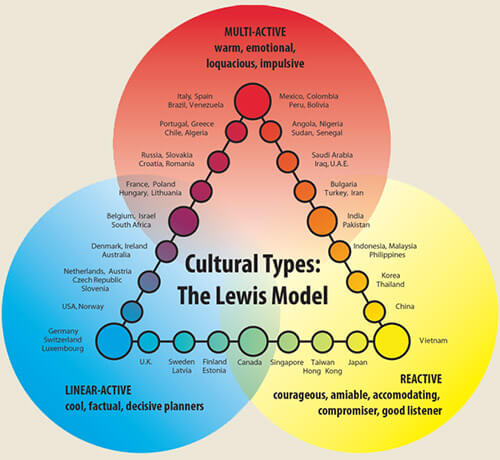Recruiting essential (and hard-to-find) world-class management talent is expensive. With a known failure rate of almost half of all hires, reducing that risk must be a high priority.
A. True Costs of Failed Leadership Hires
It’s a commonly reported statistic that nearly 50 percent of newly recruited leaders in established markets fail in the first eighteen months; this trend is very often exacerbated in cross-border, cross-culture appointments. The true cost of these failures ranges from the financial (ten to fifteen times compensation package) to the emotional (damage to corporate leadership, employee morale and commitment). Assuming a six-figure talent pool, costs can easily approach an average of US$500,000 per candidate.
Recruiting new leadership in emerging markets is even more expensive and more time consuming than in established markets. The cost of failure in emerging markets is even higher than in established markets – but it is not as easy to measure, due to opportunity costs and market share losses to a competitor. A conservative estimate is two to three times payroll cost, including half of the salary in return moving costs, half of salary in selection costs, half of salary in retaining and retooling, and one times salary in opportunity costs.
For filling key positions outside the US, finding a local national has now become the first choice of many leading corporations. Yet, the increasing shortage of highly skilled, ‘cross-culture talent’, combined with the high turover rates (of fast developing, competitive markets) are creating challenges in leadership recruitment. As executives retire, and experienced cross-cultural business leaders move on to new challenges, the available talent pool has diminished significantly. It will be a long-term challenge to build this base back to acceptable levels.
"
The flow of talented professionals to China in the last decade, and the anticipated return to a strong global position in Mexico, exacerbates leadership challenges, particularly in the US, Brazil and Mexico." - Fortune 500 company
In North America, it’s very attractive for companies to hire candidates with true multi-national experience. Living abroad, versus just doing business internationally, is more likely to assure a candidate truly understands the global nuances that can often be a factor in doing business globally. However, companies often regard expatriate assigments as a calculated risk. With a known failure rate of almost half of all hires, the exceptions are usually reserved for essential – and expensive – world-class management talent. Therefore, reducing that risk is a high priority.
B. Recruitment challenges
Moving into a new leadership position is recognized as a tough challenge; doing so in an international market is an exceptional challenge. As emerging markets develop, the demand for top-level talent will increase. In order to compete on a global level, and capture essential market share, companies will have to find ways to ensure long-term retention of their top-level, cross-border, cross-cultural hires. And do so in an ever-escalating talent war.
Global expansion will increase the demand on the relatively small talent pool that would approach international work the right way – as a way to improve as a person and as a leader.
However, talent selection tends to focus on global functional standards, and the emerging shift to cross-border/ cross-regional capability is often overlooked. The reduced supply of potential leaders willing to take foreign assignments is also an increasingly important factor – and under-realized.
Given the shortage of senior-level executives in Latin America, the expectations of Generation Y professionals will also lead to interesting recruitment challenges.
- Generation Y leaders will be more receptive to the kind of change a leader faces when he/she goes international.
- While this generation feels more entitled (flexible work schedules; increased training programs; technology; higher pay), they will be more open to cross-cultural work habits.
- The intrinsic motivation and higher expectations of the Generation Y workforce will widen the gap for talent. Most companies remain with management practices and cultures stuck in the industrial age. This is especially true for commercial and industrial companies. Once the momentum picks up towards the Knowledge Worker Age, companies will be forced to acclimate to the demands of the Generation Y workers or they won’t be able to attract the caliber and intellect of people they need to compete and succeed.
Most companies remain with management practices and cultures stuck in the industrial age. This is especially true for commercial and industrial companies. Once the momentum picks up towards the Knowledge Worker Age, companies will be forced to acclimate to the demands of the Generation Y workers or they won’t be able to attract the caliber and intellect of people they need to compete and succeed.
The Client: Understanding (and Appreciating) the Differences
Cultural differences can easily create an environment for failure. Ignorance of cultural differences can lead to complicated challenges, interviewing disasters and a key position remaining unfilled. For example, staying calm when disaster hits is regarded as a key strength in Mexico and Puerto Rico; in the US, that attitude may be perceived as lacking a sense of urgency. This misunderstanding may lead to a failure to hire.
Candidates must be open to changing their style to get results – attitude is an important tool to success. Interview questions must be devised to measure this willingness. Internal recruiters should be certified in specific behavioral interview training techniques, culture cues and communication norms. Here are some pointers:
- A company’s culture is determined by its leadership. Successful candidates must have a demonstrated propensity to acclimate to the new culture.
- Respect, reasonable patience and listening skills are paramount when working for many Asian companies.
- European companies tend to be less warm and fuzzy than Americans. It’s no accident that most European companies tend to transport European nationals to lead positions in the Americas. While most successful executives and companies are open minded, competition is too intense for companies to take risks on leadership placement.
- Europeans tend to be less expensive, although they expect longer vacations – this is especially true in the US.
- Between Canada and the US, the primary difference among native English-speaking candidates is ‘directness’. Americans tend to have a more direct and less conservative presentation approach than Canadians. Therefore, a Canadian going to the US for interviews will need to be more assertive, and make more aggressive claims to ownership of career successes.
- For US executives making hires for Canadian branch offices, there are generally many surprises regarding differences in HR policies.
- Candidates from South and Central America need to draw clear parallels between the level of discipline and sophistication of business practices they have worked with, compared to those of the US.
- Accents can be confusing – not only between South and Central America, and the US and Canada, but also within the US.
- The talent pool in Canada has a range of ethnicities, which can be a surprise to clients from the US.
- Different countries in the Americas are at different stages of economic or technological development – this impacts the ability to attract top executive talent from other countries.
- While Mexico and Puerto Rico have strong manufacturing leaders, many American companies don’t value international experience for non-global roles. For example, a manager of a manufacturing plant in Mexico or Brazil might not have the same type of experience as in the US, where plants are often automated and less labor intensive.
- The workforce from country to country has unique motivations. What’s important for success is to recognize the differences and learn to recruit, educate and then effectively manage.
Cultural differences between US, Canadian and Latin American companies can lead to a leader’s disenchantment with the new country, and eventually with the company and the post. Education, understanding and awareness of these differences can reduce the risk of candidate dissatisfaction and unhappiness.
The Candidate and his/her family:
Understanding (and Appreciating) the Differences
The Candidate
Mitigating the 50 percent failure trend should include investing in leader preparation, focusing on accelerating team performance, explaining cultural expectations within the team and paying more attention to family-adaptation issues.
- The best way to evaluate the candidate’s attitude and cross-cultural experience is to ask probing questions to measure their willingness to relocate. This should be followed up with some high-level training as part of the orientation to the new assignment. Some companies conduct psychological profiling as part of the process to evaluate their expatriates.
- Executive Search companies can help reduce the 50% failure rate by bringing a more sophisticated interview and selection process to the client. Thorough discussions are essential, covering family relocation, cultural nuances, financial and other benefit variables. These issues may increase an already stressful personal situation for families and the individual - and ignoring them may cause a resulting mis-hire.
- Continuously coaching clients on the cultural differences that may impact on the new recruit and their family should be ongoing corporate considerations.
- Paying attention to talent with definitive cross-border experience and cross-border family history is invaluable. Experienced expatriate talent pools can be mined for key leadership people. Frequently, those who have been expatriated are forgotten, and the wealth of global experience they have acquired is overlooked on repatriation. The expatriate talent pool is a rich source of data and experience that is too seldom tapped.
Next moves for the modern expatriate
"If globalisation is seen as inexorable then companies, to a greater or lesser extent, will need a globally mobile workforce tasked with administering their far-flung but rapidly growing operations. With demand stagnating in Western markets, the pressure to expand abroad in the search for revenue growth is intensifying, especially in emerging markets where the operating environment can be particularly challenging. But getting the right people in the right place for the right length of time to execute that international strategy is no simple matter. It involves an array of considerations ... that can overwhelm the hardiest executives." An Economist Intelligence Unit report, sponsored by Regus
The Family
For the candidate’s family, a cross-country relocation in the US, Canada and Latin America can mean subtle, but deal-breaking differences. These can include: continuity of children’s educations, housing, social life, spouse career, eating habits, dress and clothing, even dating and socializing issues. For example: eye contact in Puerto Rico from a student to a teacher can be seen as disrespectful when the teacher is scolding the student (similar to Japan and many other countries). However, in North America, lack of eye contact is often seen as not being forthright. Cross-cultural training is key in helping families cope with these types of differences.
- There are very significant family-related issues from country to country. Many people will not move their family to Mexico City or many Latin countries because of safety fears.
- Many Latin American families want their children educated in the US.
- Between US and Canada, the family dynamic is generally consistent, except for a higher level of acceptable business travel in the US. Americans are more inclined to relocate, while Canadians typically put more emphasis on work/life balance.
- South and Central American candidates generally have large families, and this must be factored into relocation costs. However, in such families, there are usually fewer issues with spousal career/income considerations.
- Child/spousal issues are often overlooked in North American cross-border movement. For example, L1 vs. L2 transfer remains a significant issue as dual career spouses may have limited work opportunities.
- North America to Europe transfers often result in considerable performance-ranking issues in schools, with at least one percentage drop in performance-distribution scorings in the year of the cross-border transfer. In Latin America, education to North American standards remains at risk, as levels are generally lower.
The Office and the Society:
Understanding (and Appreciating) the Differences
The Office
During a leadership training session, a coach used some scenes of the movie ‘300 of Sparta’. A trainee from Iraq was offended by the historic approach from the movie that, in his culture, is a lie. Such disastrous mistakes can be avoided with education and a better understanding of country and office culture.
- Job titles and, therefore, responsibility and control can lead to serious misunderstandings. For example, a CEO in the US or Canada might not be the equivalent position in Brazil. In Latin America, most regional General Managers or even Country Managers are titled President and even CEO, while those titles are reserved for the true corporate entity in the US and Canada.
- Job titles for manager, director, VP, Jr. VP, Sr. VP in Canada, are Analyst, Supervisor or Manager in Brazil. However, job titles are generally consistent between the US and Canada, with the exception of Country General Manager effectively being seen as the same as President. The US/Canada Director can also have a different meaning for an European candidate.
- US and Canadian communication styles are often regarded as direct (even abusive at times), compared to the perception of Latin Americans having a more tactful, calmer perspective.
- Remuneration styles are different, with a higher percentage of benefits being indirect in Latin America compared to the US and Canada. In Latin America, a total remuneration assessment is required because of monetary and currency inflation.
- There may be an assumption of an apparent lack of willingness in US and Canadian candidates to connect with people, compared to the desire of Latin Americans to do so. Business and personal relationships are kept separate in US and Canada, while this is not the case in Latin America.
- A US-based client may feel that candidates for a General Manager role who are of specific foreign descents may not be acceptable in a number of their markets and would, therefore, be limited in international opportunities with the company.
The Society
Most global companies have more in common than they do differences. The communications nuances and biases go both ways, but a heightened mutual respect must be prevalent from inside the company. Mistrust often exists externally because of influences such as the media and the Internet.
- There are many nuances, biases and differences between states in the US - as many as there are from country to country in the Americas. For instance, in the US, many people believe that people from California don’t have a good work ethic, and that people with a southern accent are ignorant. Americans tend to assume Canadians are ‘the same’ and, thereby, miss the subtle distinctions. For example, Americans tend to have an ‘at your post’ mentality or military model, whereas Canadians tend to approach work with a ‘smarter, not harder’ mindset.
- Some words that are common in English – for example ‘stupid’ – are considered very offensive in Brazil.
- Questions related to moral and sexual harassment in Brazil tend to be treated with the same rules as the US and Canada. However, there may be less formality in Brazil.
- Food habits, approach to people in high-level hierarchy or authority, behaviours at social events, in bars and clubs, and at sport events all require sensitivity. Sometimes, training is necessary to avoid challenges.
The Dollar Difference
According to the Economist magazine, two separate surveys*, found that ‘chief executives and company directors earned more in São Paulo, Brazil’s business capital, than in New York, London, Singapore or Hong Kong’.
The numbers:
$620,000 for a CEO in the manufacturing sector in San Paulo, and $243,000 for board directors, compared to New York’s $574,000 and $213,000 respectively. Companies surveyed are in the auto, steel, metal, minerals and construction industries, with between 1,000 and 15,000 employees. In the financial sector salaries can be higher, with additional bonuses up to 23 times a year. On the other hand, Brazil’s payroll taxes are among the world’s highest. (All dollar amounts in US currency)
- Make sure that the expatriate will have the same purchasing power overseas as they have at home. This can be accomplished through calculating Salary Purchasing Power Parity (SPPP). This takes into account their Home Gross Spendable Salary, Home Net Spendable Salary, Host Net Spendable Salary, and Host Gross Salary.
- Quarterly, review the Host Gross Salary to gauge the impact of cost of living due to inflation and the exhange rate.
IRC Global Executive Search Partners: Globally Connected. Locally Committed.
Stereotypes, ignorance, assumptions and general lack of cross-culture competencies can mean the right people may not always be given the opportunities they deserve.
Preparing the potential candidate – and the company – about cultural and corporate differences takes experience and local knowledge.
IRC Global Executive Search Partners strives to be the preferred global alliance of integrated, entrepreneurially-focused retained search firms, delivering exceptional service to clients around the globe.
IRC Global Executive Search Partners deploys energetic, committed and dedicated professionals; who provide global and local retained search services of the highest quality for clients in each market.
- In the spirit of true partnership, all IRC Global Executive Search Partners member firms support our shared vision
and mission:
"I work with companies that have presence in both the US and in South America. Prospective talent must have experience working in both countries, and have cultural training, overall cross-border education, and language skills."
"Biases exist in cross-border and cross-culture searches. That being said, in certain regions of the world, being in touch with those biases is mission critical – because it’s a business reality. The culture of every organization is a product of its environment and, while the country and regional borders are fast becoming very low barriers to do business, success or failure (to be effective) is contingent on the executive’s ability to acclimate to both the corporate leadership and the countries in which the business operates."
- IRC member firms emphasize cultural differences, not flaws:
"I educate my clients and candidates about cultural biases in an effort to assure a successful match, and so we are sure the best person is hired for the job – based on business competencies versus cultural nuances. That being said, a few minutes of attempted education will not eliminate these biases from affecting the outcome of the interviews."
"I am constantly working with people on both sides of the borders to understand how to more effectively deal with each other to get the results both parties need to succeed."
An exclusive global executive search boutique network, the IRC Global Executive Search Partners network has the experience of being globally connected and locally committed, with the local knowledge you need to ensure your next cross-country, cross-culture executive hire is a long-term, cost effective, and mutually satisfying hire.
http://www.ircsearchpartners.com/global-offices.html










